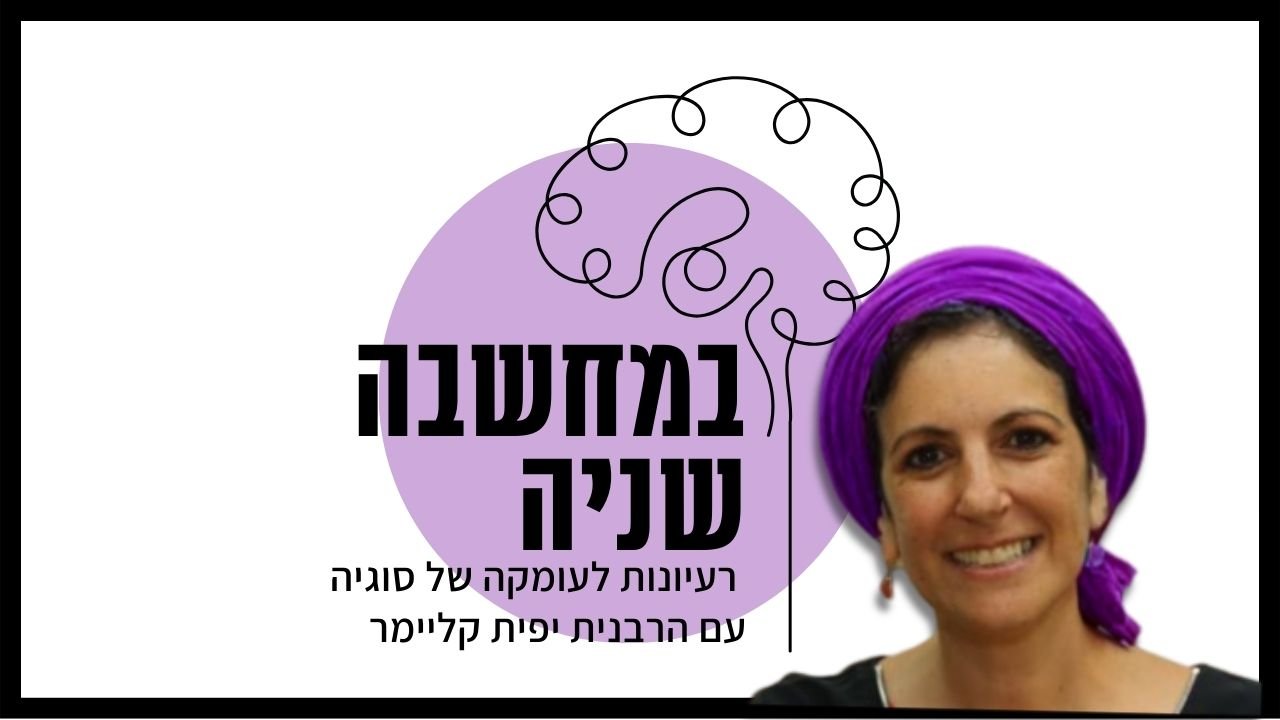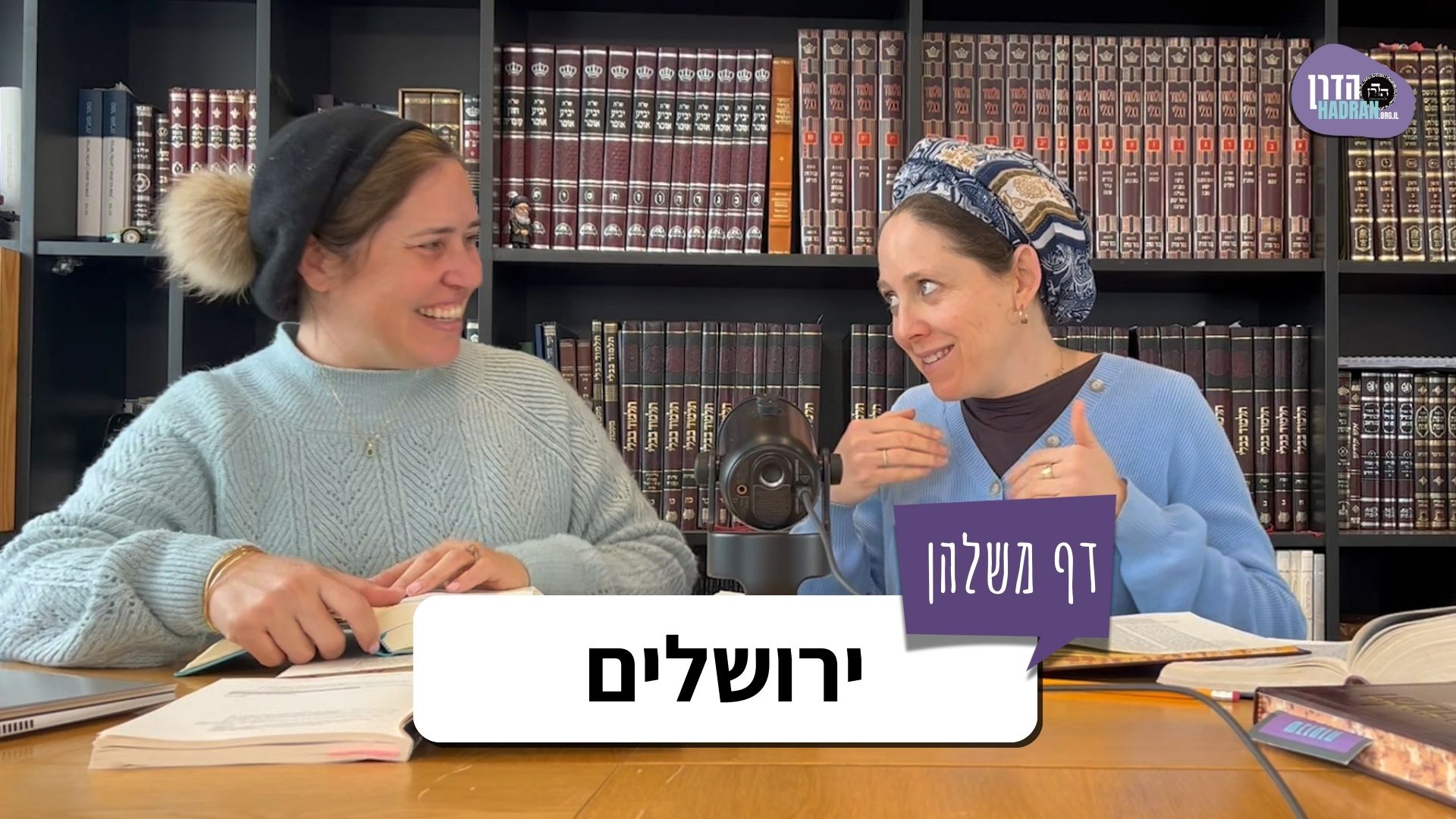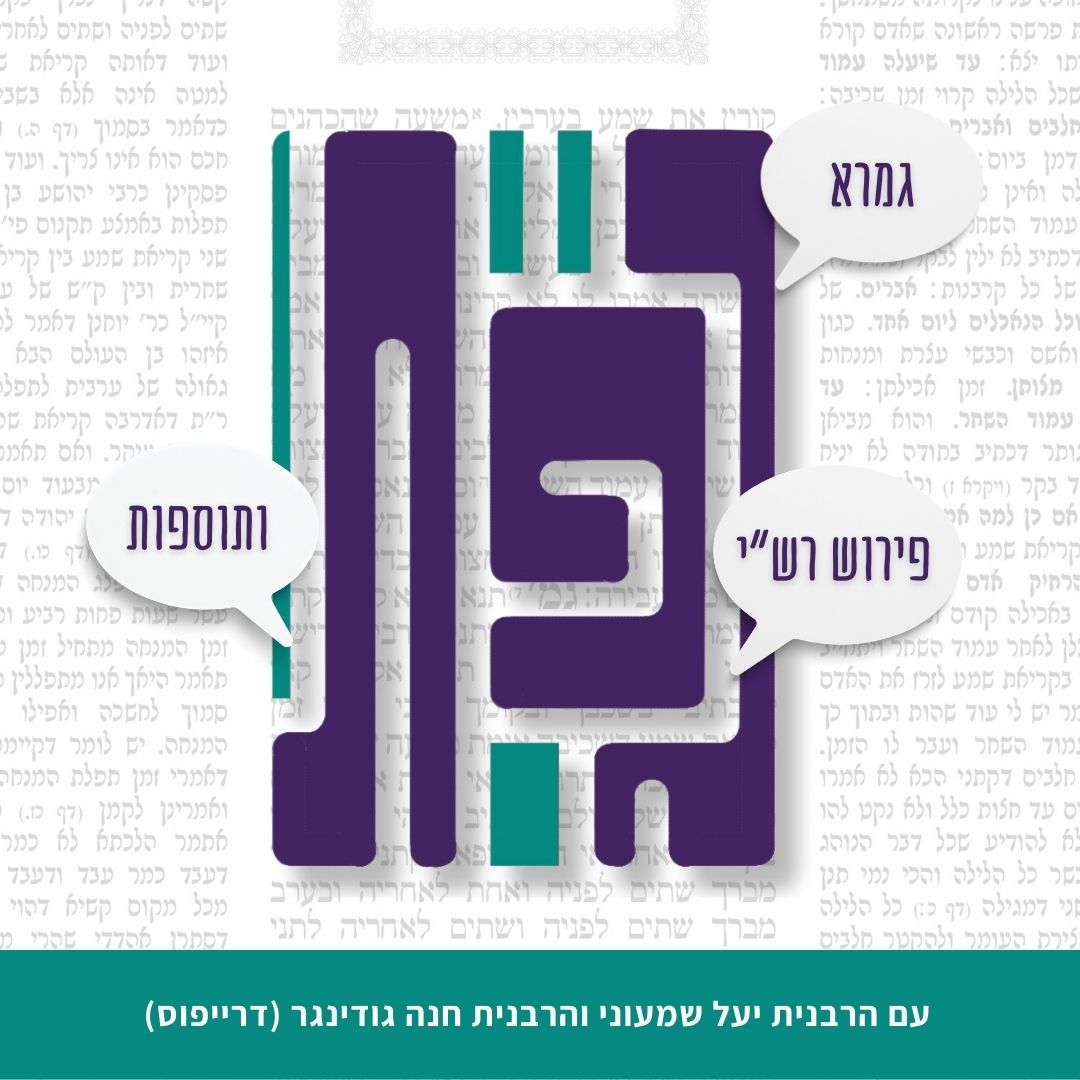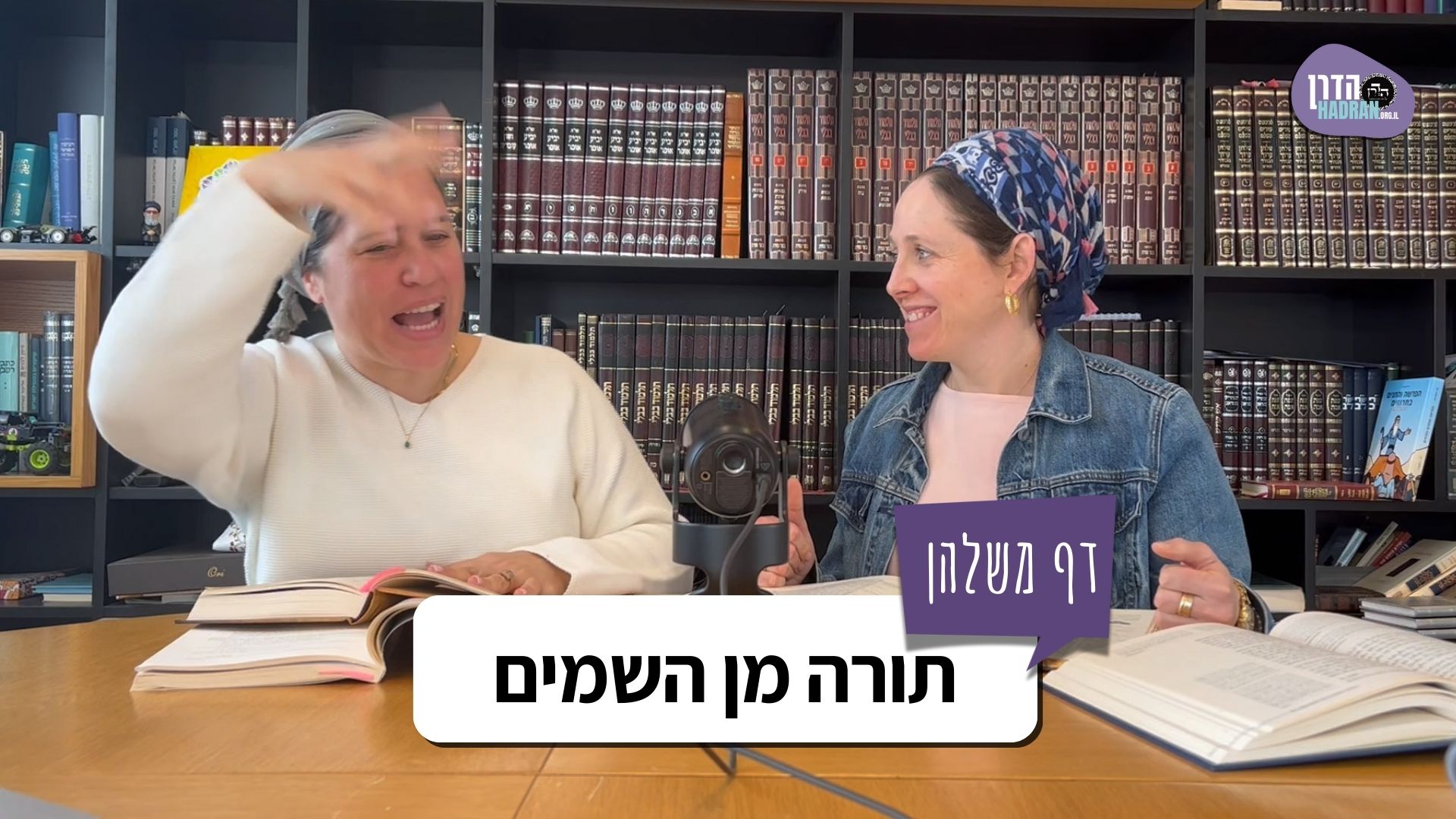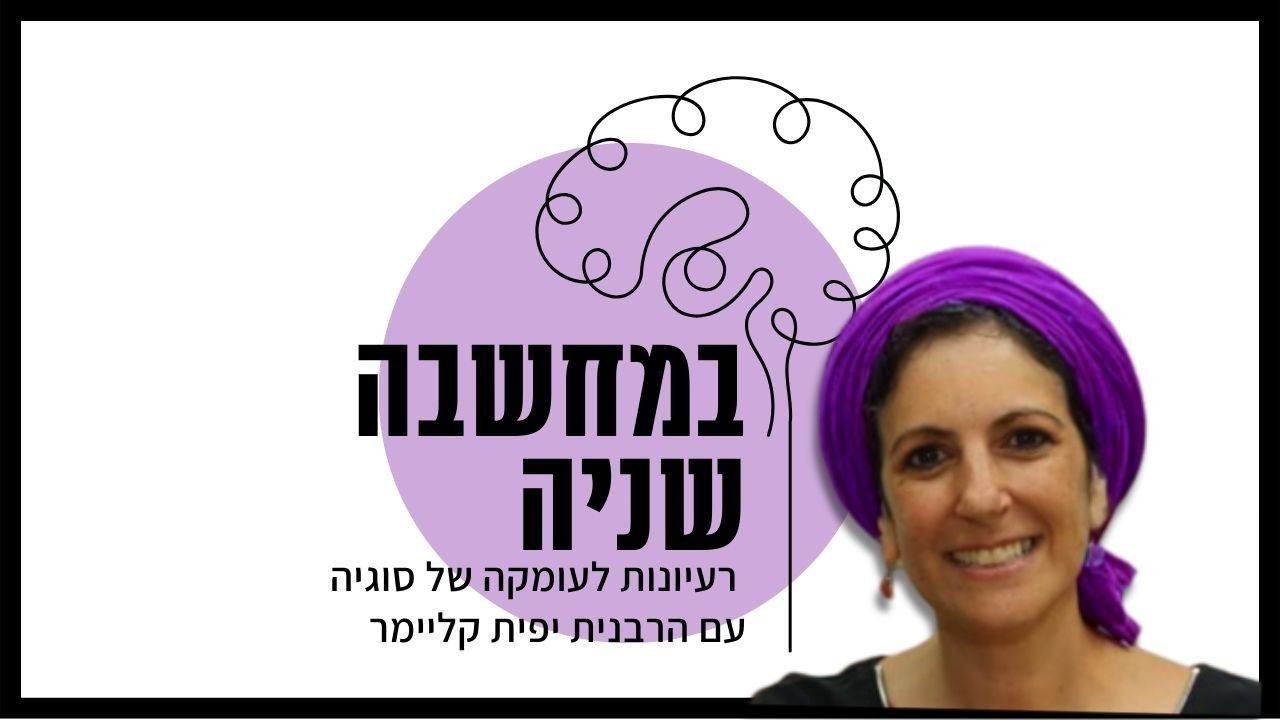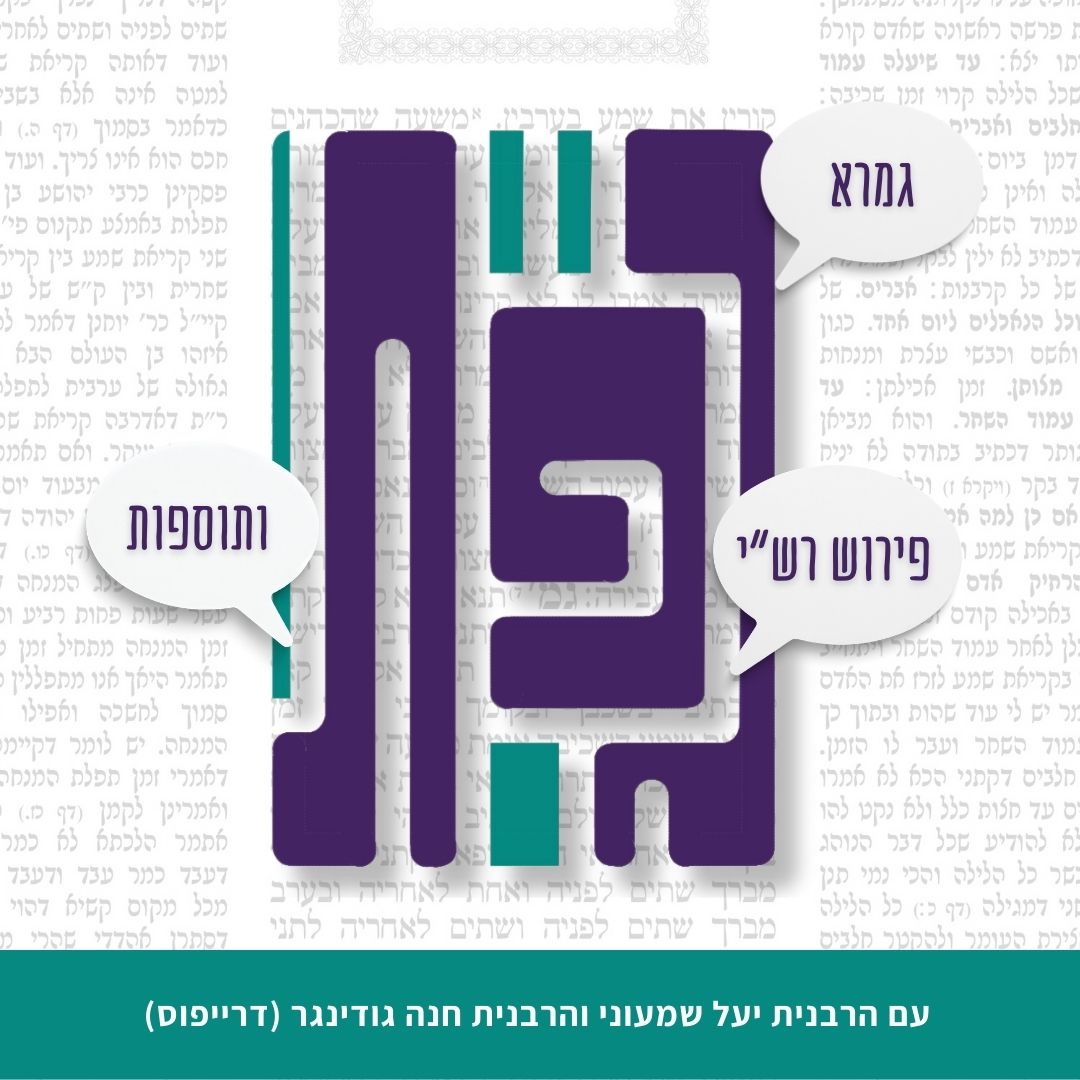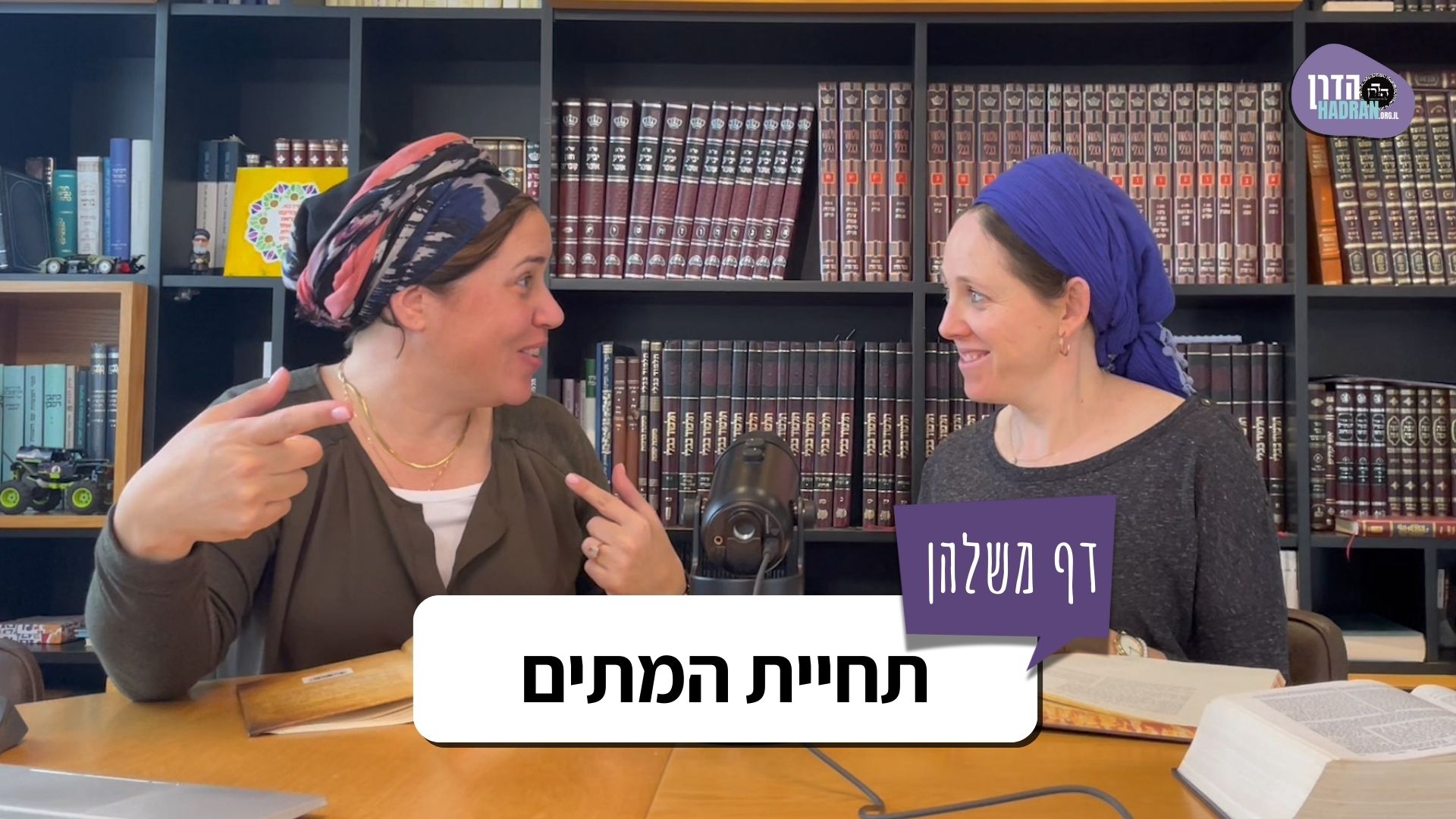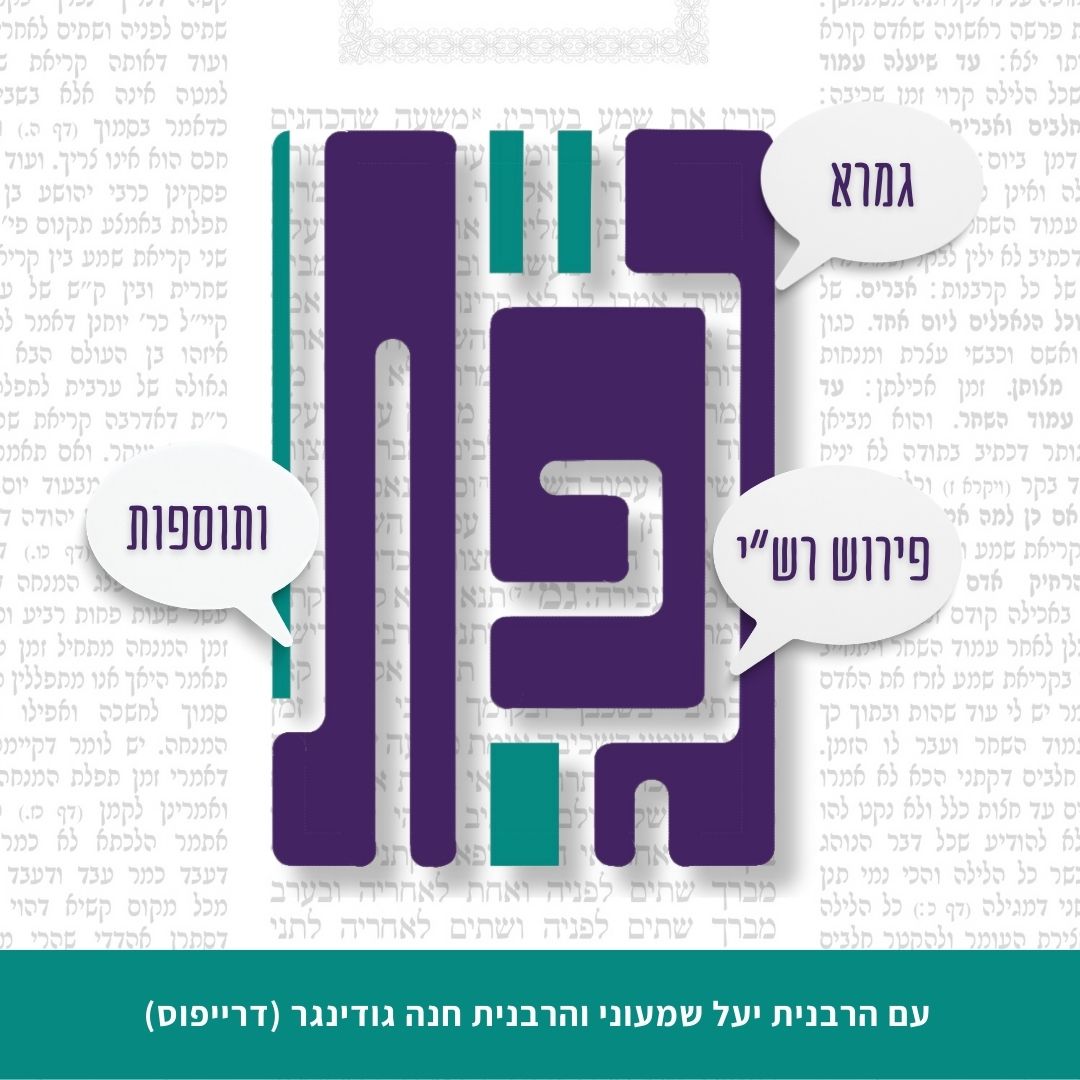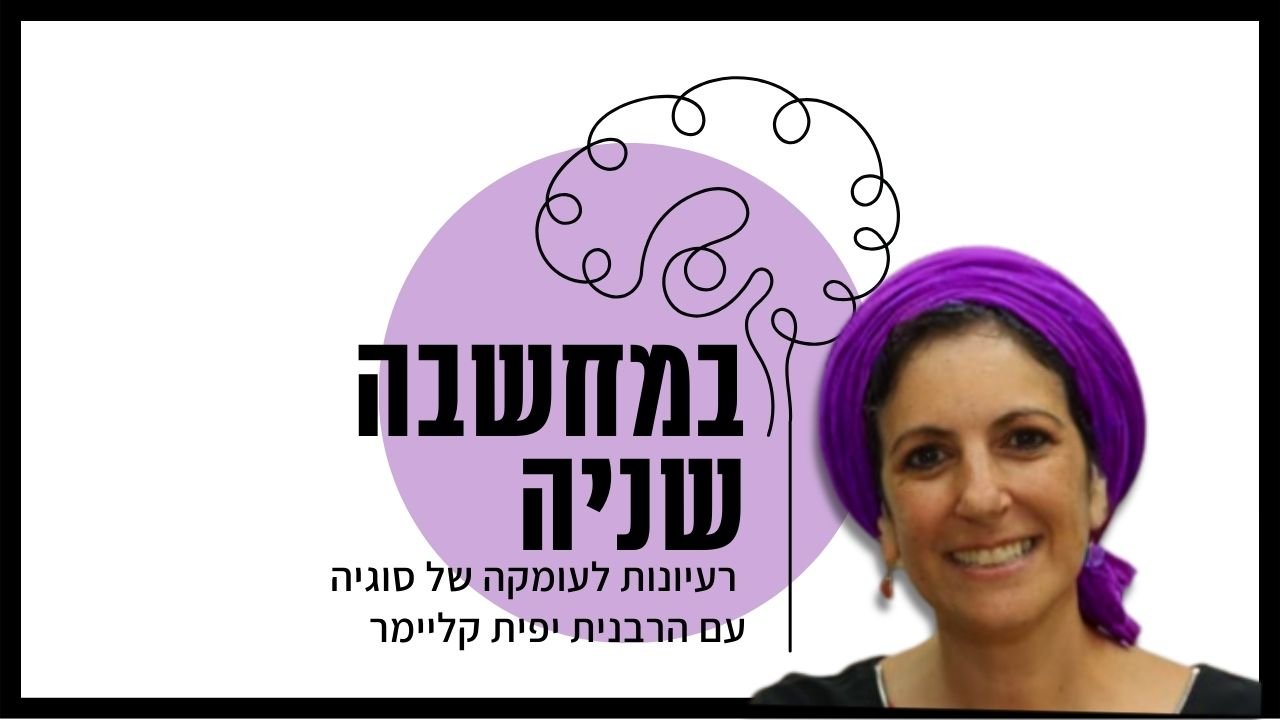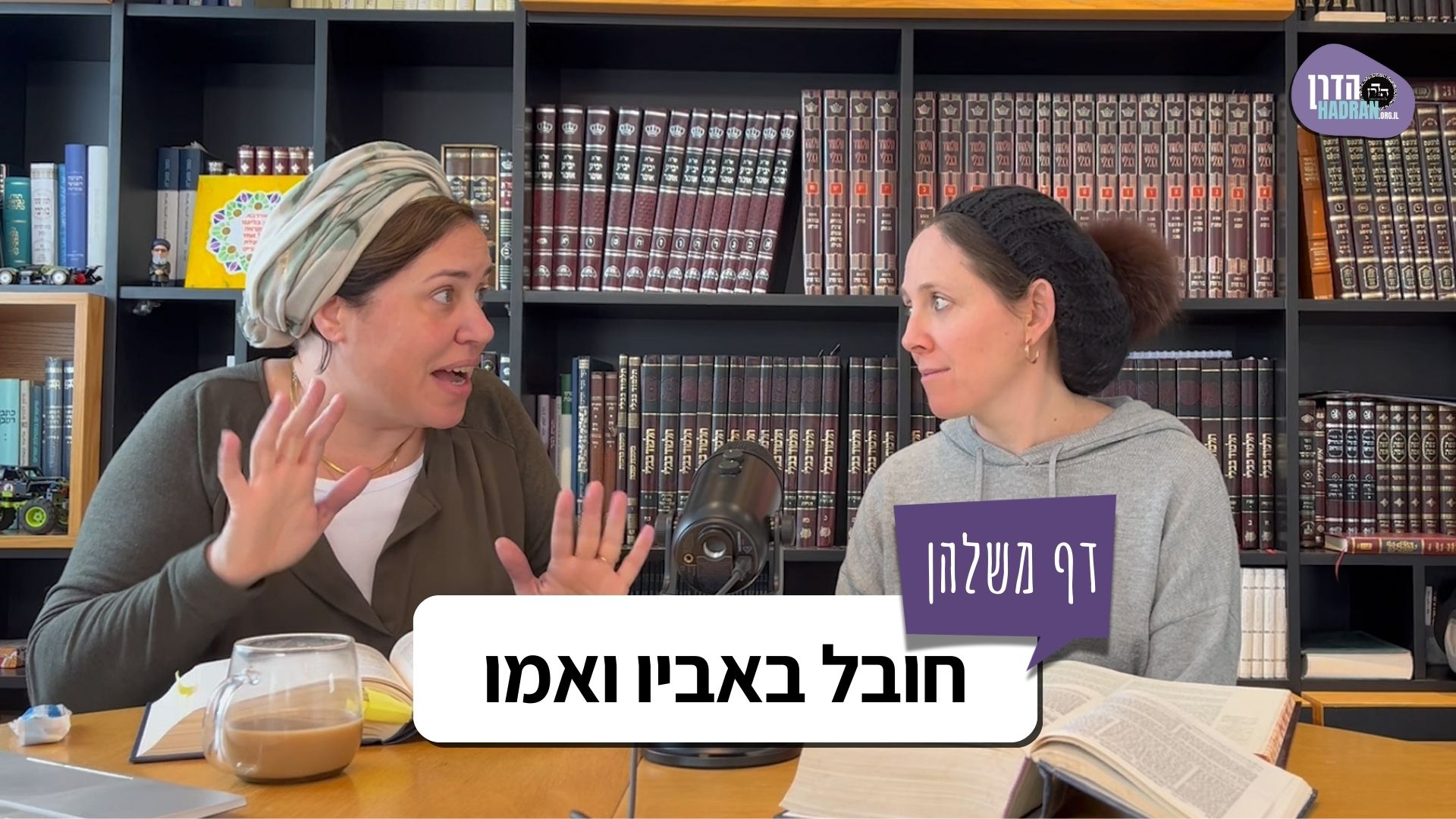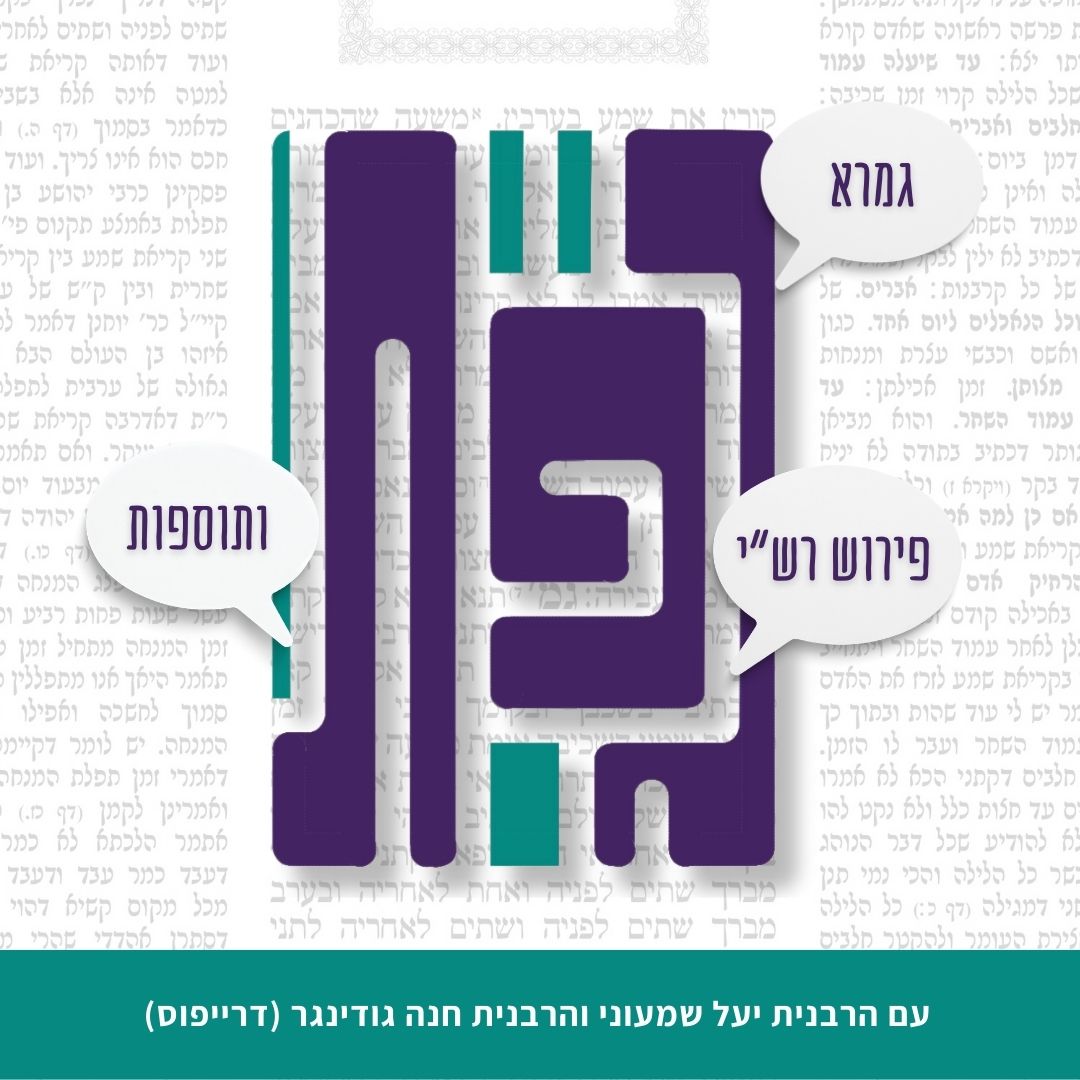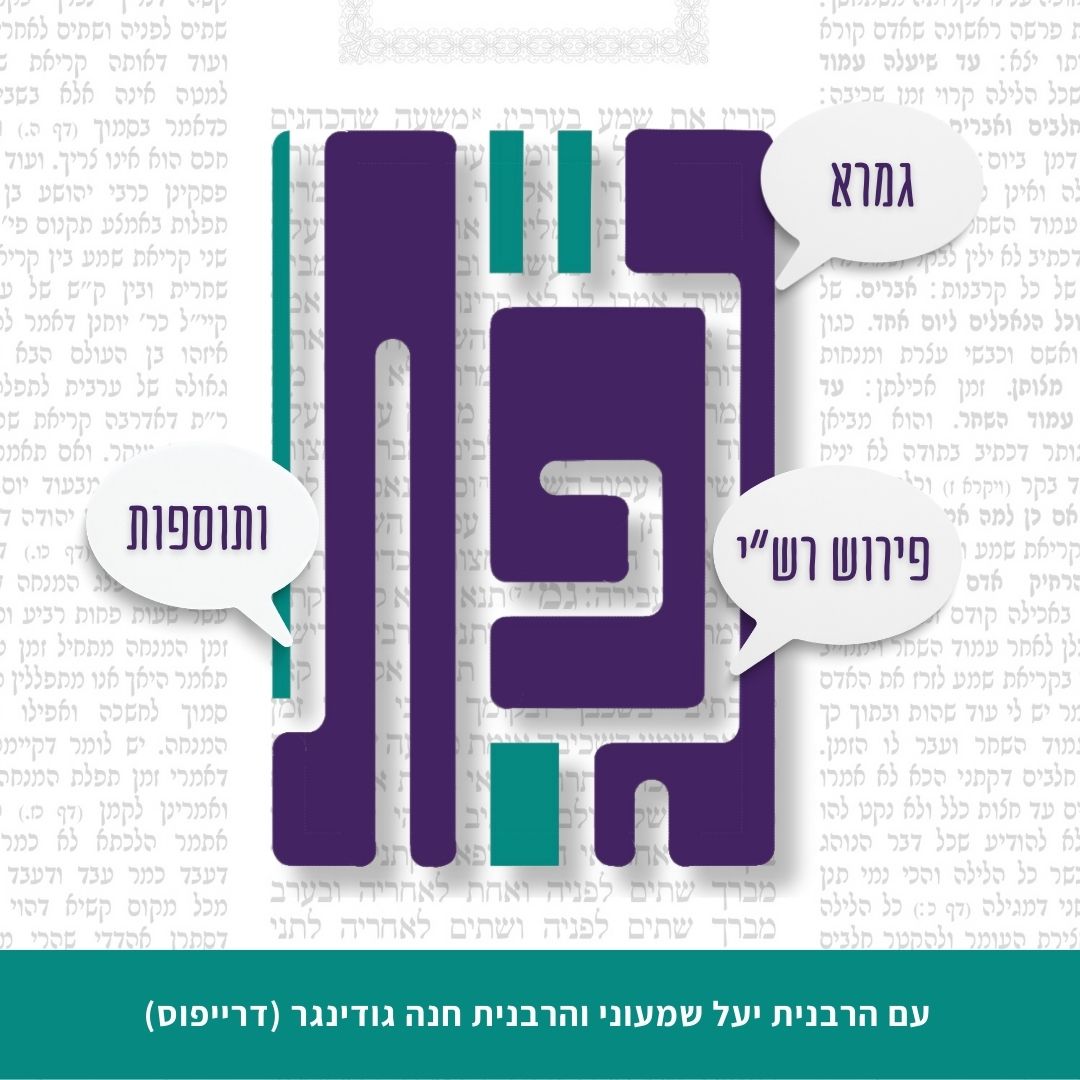סנהדרין צט
וְהַיְינוּ דַּאֲמַר לֵיהּ הָהוּא מִינָא לְרַבִּי אֲבָהוּ: אֵימָתַי אָתֵי מָשִׁיחַ? אָמַר לֵיהּ: לְכִי חָפֵי לְהוּ חֲשׁוֹכָא לְהָנְהוּ אִינָשֵׁי. אֲמַר לֵיהּ: מֵילָט קָא לָיְיטַתְּ לִי? אֲמַר לֵיהּ: קְרָא כְּתִיב, ״כִּי הִנֵּה הַחֹשֶׁךְ יְכַסֶּה אֶרֶץ וַעֲרָפֶל לְאֻמִּים וְעָלַיִךְ יִזְרַח ה׳ וּכְבוֹדוֹ עָלַיִךְ יֵרָאֶה״.
And that is the background for the following exchange, as a certain heretic said to Rabbi Abbahu: When will the Messiah come? Rabbi Abbahu said to him: He will come when the darkness will enshroud these people, i.e., you. The heretic said to him: Are you cursing me for no reason? Rabbi Abbahu said to him, I am merely relating to you a verse that is written: “For behold, the darkness shall cover the earth, and fog the peoples; but the Lord shall shine upon you, and His glory shall be seen upon you” (Isaiah 60:2).
תַּנְיָא: רַבִּי אֱלִיעֶזֶר אוֹמֵר, יְמוֹת הַמָּשִׁיחַ אַרְבָּעִים שָׁנָה, שֶׁנֶּאֱמַר ״אַרְבָּעִים שָׁנָה אָקוּט בְּדוֹר״. רַבִּי אֶלְעָזָר בֶּן עֲזַרְיָה אוֹמֵר, שִׁבְעִים שָׁנָה, שֶׁנֶּאֱמַר ״וְהָיָה בַּיּוֹם הַהוּא וְנִשְׁכַּחַת צֹר שִׁבְעִים שָׁנָה כִּימֵי מֶלֶךְ אֶחָד״. אֵיזֶהוּ מֶלֶךְ מְיוּחָד? הֱוֵי אוֹמֵר: זֶה מָשִׁיחַ.
§ It is taught in a baraita: Rabbi Eliezer says: The messianic era will be forty years long, as it is stated: “Forty years will I strive with the generation” (Psalms 95:10). The forty years of strife with the gentiles will be followed by the glory days of the Messiah. Rabbi Elazar ben Azarya says: The messianic era will last seventy years, as it is stated: “And it shall come to pass on that day, that Tyre shall be forgotten seventy years, according to the days of one king” (Isaiah 23:15). In this context, one [eḥad], means unique [meyuḥad]. Which is the unique king? You must say that this is a reference to the Messiah.
רַבִּי אוֹמֵר: שְׁלֹשָׁה דּוֹרוֹת, שֶׁנֶּאֱמַר: ״יִירָאוּךָ עִם שָׁמֶשׁ וְלִפְנֵי יָרֵחַ דּוֹר דּוֹרִים״. רַבִּי הִילֵּל אוֹמֵר: אֵין לָהֶם מָשִׁיחַ לְיִשְׂרָאֵל, שֶׁכְּבָר אֲכָלוּהוּ בִּימֵי חִזְקִיָּה.
Rabbi Yehuda HaNasi says: The messianic era will last three generations, as it is stated: “May they fear You as long as the sun and moon endure, throughout the generations [dor dorim]” (Psalms 72:5). Dor is singular and dorim is plural, for a total of three generations. Rabbi Hillel says: There is no Messiah coming for the Jewish people, as they already ate from him, as all the prophecies relating to the Messiah were already fulfilled, during the days of Hezekiah.
אָמַר רַב יוֹסֵף: שְׁרָא לֵיהּ מָרֵיהּ לְרַבִּי הִילֵּל. חִזְקִיָּה אֵימַת הֲוָה? בְּבַיִת רִאשׁוֹן! וְאִילּוּ זְכַרְיָה קָא מִתְנַבֵּי בְּבַיִת שֵׁנִי, וְאָמַר: ״גִּילִי מְאֹד בַּת צִיּוֹן הָרִיעִי בַּת יְרוּשָׁלִַים הִנֵּה מַלְכֵּךְ יָבוֹא לָךְ צַדִּיק וְנוֹשָׁע הוּא עָנִי וְרֹכֵב עַל חֲמוֹר וְעַל עַיִר בֶּן אֲתֹנוֹת״.
Rav Yosef says: May the Master forgive Rabbi Hillel for stating matters with no basis. With regard to Hezekiah, when was his reign? It was during the First Temple period. Whereas Zechariah ben Berechiah, the prophet, prophesied during the Second Temple period and said: “Rejoice greatly, daughter of Zion; shout, daughter of Jerusalem; behold, your king will come to you; he is just and victorious; lowly and riding upon a donkey and upon a colt, the foal of a donkey” (Zechariah 9:9). In the generations after Hezekiah, there are prophecies about both redemption and the coming of the Messiah.
תַּנְיָא אִידַּךְ: רַבִּי אֱלִיעֶזֶר אוֹמֵר, יְמוֹת הַמָּשִׁיחַ אַרְבָּעִים שָׁנָה. כְּתִיב הָכָא: ״וַיְעַנְּךָ וַיַּרְעִבֶךָ וַיַּאֲכִלְךָ״, וּכְתִיב הָתָם: ״שַׂמְּחֵנוּ כִּימוֹת עִנִּיתָנוּ שְׁנוֹת רָאִינוּ רָעָה״.
It is taught in another baraita: Rabbi Eliezer says: The messianic era will be forty years long. It is written here with regard to the forty-year sojourn of the children of Israel in the wilderness: “And He afflicted you, and suffered you to hunger and fed you with manna” (Deuteronomy 8:3); and it is written there: “Make us glad according to the days that You afflicted us, the years that we saw evil” (Psalms 90:15).
רַבִּי דּוֹסָא אוֹמֵר: אַרְבַּע מֵאוֹת שָׁנָה. כְּתִיב הָכָא: ״וַעֲבָדוּם וְעִנּוּ אֹתָם אַרְבַּע מֵאוֹת שָׁנָה״, וּכְתִיב הָתָם: ״שַׂמְּחֵנוּ כִּימוֹת עִנִּיתָנוּ״.
Rabbi Dosa says: The messianic era will last four hundred years. It is written here with regard to the Covenant of the Pieces: “And they shall serve them, and they shall afflict them four hundred years” (Genesis 15:13); and it is written there: “Make us glad according to the days that You afflicted us.”
רַבִּי אוֹמֵר: שְׁלֹשׁ מֵאוֹת וְשִׁשִּׁים וְחָמֵשׁ שָׁנָה, כְּמִנְיַן יְמוֹת הַחַמָּה, שֶׁנֶּאֱמַר: ״כִּי יוֹם נָקָם בְּלִבִּי וּשְׁנַת גְּאוּלַי בָּאָה״.
Rabbi Yehuda HaNasi says: The messianic era will last 365 years, corresponding to the number of days of the solar year, as it is stated: “For the day of vengeance is in My heart, and the year of My redeemed is come” (Isaiah 63:4).
מַאי ״יוֹם נָקָם בְּלִבִּי״? אָמַר רַבִּי יוֹחָנָן: לְלִבִּי גִּלִּיתִי, לְאֵבָרַיי לֹא גִּלִּיתִי. רַבִּי שִׁמְעוֹן בֶּן לָקִישׁ אָמַר: לְלִבִּי גִּלִּיתִי, לְמַלְאֲכֵי הַשָּׁרֵת לֹא גִּלִּיתִי.
The Gemara asks: What is the meaning of the phrase: “For the day of vengeance is in My heart”? Rabbi Yoḥanan says that it means that God said: I revealed the day of vengeance to My heart, but I did not reveal it to My limbs, as it were, as I never stated it explicitly. Rabbi Shimon ben Lakish says that it means that God said: I revealed this secret to My heart, but I did not reveal it to the ministering angels.
תָּנֵי אֲבִימִי בְּרֵיהּ דְּרַבִּי אֲבָהוּ: יְמוֹת הַמָּשִׁיחַ לְיִשְׂרָאֵל שִׁבְעַת אֲלָפִים שָׁנָה, שֶׁנֶּאֱמַר: ״וּמְשׂוֹשׂ חָתָן עַל כַּלָּה כֵּן יָשִׂישׂ עָלַיִךְ אֱלֹהֶיךָ״.
Avimi, son of Rabbi Abbahu, taught: The messianic era for the Jewish people will last seven thousand years, as it is stated: “And as the bridegroom rejoices over the bride, so shall your God rejoice over you” (Isaiah 62:5). The bridegroom rejoices over the bride for seven days, and the day of the Holy One, Blessed be He, is one thousand years.
אָמַר רַב יְהוּדָה אָמַר שְׁמוּאֵל: יְמוֹת הַמָּשִׁיחַ כְּמִיּוֹם שֶׁנִּבְרָא הָעוֹלָם וְעַד עַכְשָׁיו, שֶׁנֶּאֱמַר: ״כִּימֵי הַשָּׁמַיִם עַל הָאָרֶץ״.
Rav Yehuda says that Shmuel says: The duration of the messianic era is like the duration of the period that runs from the day the world was created until now, i.e., the day when the Messiah will come, as it is stated: “That your days may be multiplied, and the days of your children, in the land that the Lord swore to your fathers to give them, as the days of heaven upon the earth” (Deuteronomy 11:21).
רַב נַחְמָן בַּר יִצְחָק אָמַר: כִּימֵי נֹחַ עַד עַכְשָׁיו, שֶׁנֶּאֱמַר: ״כִּי מֵי נֹחַ זֹאת לִי אֲשֶׁר נִשְׁבַּעְתִּי״.
Rav Naḥman bar Yitzḥak says: The duration of the messianic era is like the duration of the period that runs from the days of Noah until now, i.e., the day when the Messiah will come, as it is stated with regard to redemption: “For this is as the seas of [ki mei] Noah to me; as I have sworn that the seas of Noah shall no more go over the earth, so have I sworn that I will not be angry with you nor rebuke you” (Isaiah 54:9). The words ki mei can be understood as one word, kimei, meaning: Like the days of.
אָמַר רַבִּי חִיָּיא בַּר אַבָּא אָמַר רַבִּי יוֹחָנָן: כׇּל הַנְּבִיאִים כּוּלָּן לֹא נִתְנַבְּאוּ אֶלָּא לִימוֹת הַמָּשִׁיחַ, אֲבָל לָעוֹלָם הַבָּא – ״עַיִן לֹא רָאָתָה אֱלֹהִים זוּלָתְךָ אֱלֹהִים יַעֲשֶׂה לִמְחַכֵּה לוֹ״. וּפְלִיגָא דִּשְׁמוּאֵל, דְּאָמַר שְׁמוּאֵל: אֵין בֵּין הָעוֹלָם הַזֶּה לִימוֹת הַמָּשִׁיחַ אֶלָּא שִׁעְבּוּד מַלְכִיּוֹת בִּלְבַד.
§ Rabbi Ḥiyya bar Abba says that Rabbi Yoḥanan says: In their prophecies with regard to redemption and the end of days, all the prophets prophesied only about the messianic era, but with regard to the World-to-Come the reward is not quantifiable, as it states: “No eye has seen it, God, aside from You, Who will do for those who await Him” (Isaiah 64:3). The Gemara notes: And this statement disagrees with the opinion of Shmuel, as Shmuel says: The difference between this world and the messianic era is only with regard to servitude to foreign kingdoms alone, as they will leave Eretz Yisrael.
וְאָמַר רַבִּי חִיָּיא בַּר אַבָּא אָמַר רַבִּי יוֹחָנָן: כׇּל הַנְּבִיאִים לֹא נִתְנַבְּאוּ אֶלָּא לְבַעֲלֵי תְשׁוּבָה, אֲבָל צַדִּיקִים גְּמוּרִים – ״עַיִן לֹא רָאָתָה אֱלֹהִים זוּלָתְךָ״. וּפְלִיגָא דְּרַבִּי אֲבָהוּ, דְּאָמַר רַבִּי אֲבָהוּ אָמַר רַב: מָקוֹם שֶׁבַּעֲלֵי תְשׁוּבָה עוֹמְדִין שָׁם – צַדִּיקִים אֵינָן עוֹמְדִין שָׁם, שֶׁנֶּאֱמַר: ״שָׁלוֹם שָׁלוֹם לָרָחוֹק וְלַקָּרוֹב״. בְּרֵישָׁא רָחוֹק וַהֲדַר קָרוֹב. מַאי ״רָחוֹק״ – רָחוֹק דְּמֵעִיקָּרָא. וּמַאי ״קָרוֹב״ – קָרוֹב דְּמֵעִיקָּרָא וּדְהַשְׁתָּא.
And Rabbi Ḥiyya bar Abba says that Rabbi Yoḥanan says: All of the prophets prophesied their prophecies of consolation only with regard to penitents, but with regard to the reward of the completely righteous it is stated: “No eye has seen it, God, aside from You.” The Gemara notes: And the opinion expressed in this statement disagrees with the opinion of Rabbi Abbahu, who holds that penitents are superior to the righteous, as Rabbi Abbahu says that Rav says: In the place where penitents stand, even the completely righteous do not stand, as it is stated: “Peace, peace upon him who is far and him who is near” (Isaiah 57:19). Peace and greeting is extended first to him who is far, and only thereafter is peace extended to him who is near. What is the meaning of the term: “Upon him who is far”? It means: One who was initially far, i.e., the penitent. And what is the meaning of the term: “Him who is near”? It means: One who was initially near and continues to be near at present, i.e., the completely righteous individual.
וְרַבִּי יוֹחָנָן אָמַר: ״לָרָחוֹק״ – שֶׁהוּא רָחוֹק מֵעֲבֵירָה, ״קָרוֹב״ – שֶׁהוּא קָרוֹב מֵעֲבֵירָה וְנִתְרַחֵק מִמֶּנָּה.
And Rabbi Yoḥanan says: “Upon him who is far” is referring to one who is distant from transgression, the completely righteous individual. “Him who is near” is referring to one who is near to transgression and distanced himself from it, the penitent.
וְאָמַר רַבִּי חִיָּיא בַּר אַבָּא אָמַר רַבִּי יוֹחָנָן: כׇּל הַנְּבִיאִים כּוּלָּן לֹא נִתְנַבְּאוּ אֶלָּא לְמַשִּׂיא בִּתּוֹ לְתַלְמִיד חָכָם, וּלְעוֹשֶׂה פְּרַקְמַטְיָא לְתַלְמִיד חָכָם, וְלִמְהַנֶּה תַּלְמִיד חָכָם מִנְּכָסָיו. אֲבָל תַּלְמִידֵי חֲכָמִים עַצְמָן – ״עַיִן לֹא רָאָתָה אֱלֹהִים זוּלָתְךָ״.
And Rabbi Ḥiyya bar Abba says that Rabbi Yoḥanan says: All of the prophets prophesied their prophecies of consolation only with regard to one who values wisdom and therefore marries his daughter to a Torah scholar, and to one who conducts business [perakmatya] on behalf of a Torah scholar, and to one who utilizes his wealth to benefit a Torah scholar from his property in some other way. But the prophets did not describe the extent of the reward for Torah scholars themselves, whose reward is not quantifiable, as it is stated: “No eye has seen it, God, aside from You.”
מַאי ״עַיִן לֹא רָאָתָה״? אָמַר רַבִּי יְהוֹשֻׁעַ בֶּן לֵוִי: זֶה יַיִן הַמְשׁוּמָּר בַּעֲנָבָיו מִשֵּׁשֶׁת יְמֵי בְּרֵאשִׁית. רֵישׁ לָקִישׁ אָמַר: זֶה עֵדֶן, שֶׁלֹּא רָאֲתָה עַיִן מֵעוֹלָם. וְאִם תֹּאמַר: אָדָם הֵיכָן דָּר? בַּגָּן. וְאִם תֹּאמַר: גַּן הוּא עֵדֶן? תַּלְמוּד לוֹמַר: ״וְנָהָר יֹצֵא מֵעֵדֶן לְהַשְׁקוֹת אֶת הַגָּן״.
The Gemara asks: What reward is indicated in the phrase “no eye has seen it”? Rabbi Yehoshua ben Levi says: This is wine preserved in its grapes from the six days of Creation. No person has drunk that wine and therefore no one can appreciate its quality. Reish Lakish says: This is Eden, which no eye has ever seen. And if you say: Where did Adam the first man live, if not in Eden, the answer is that he lived in the garden. And lest you say: The garden is Eden and they are indistinguishable, the verse states: “And a river emerged from Eden to irrigate the garden” (Genesis 2:10), indicating that they are two distinct places.
וְהָאוֹמֵר: אֵין תּוֹרָה מִן הַשָּׁמַיִם וְכוּ׳. תָּנוּ רַבָּנַן: ״כִּי דְבַר ה׳ בָּזָה וּמִצְוָתוֹ הֵפַר הִכָּרֵת תִּכָּרֵת״ – זֶה הָאוֹמֵר: אֵין תּוֹרָה מִן הַשָּׁמַיִם. דָּבָר אַחֵר: ״כִּי דְבַר ה׳ בָּזָה״ – זֶה אֶפִּיקוֹרוֹס.
§ The mishna teaches that those who have no share in the World-to-Come include: And one who says: The Torah did not originate from Heaven. The Sages taught in a baraita that with regard to the verse: “Because he has despised the word of the Lord and has breached His commandment; that soul shall be excised; his iniquity shall be upon him” (Numbers 15:31), this is a reference to one who says: The Torah did not originate from Heaven. Alternatively, one can explain: “Because he has despised the word of the Lord”; this is a reference to an epikoros, who treats the word of God with contempt.
דָּבָר אַחֵר: ״כִּי דְבַר ה׳ בָּזָה״ – זֶה הַמְגַלֶּה פָּנִים בַּתּוֹרָה. ״וְאֶת מִצְוָתוֹ הֵפַר״ – זֶה הַמֵּפֵר בְּרִית בָּשָׂר. ״הִכָּרֵת תִּכָּרֵת״ – ״הִכָּרֵת״ בָּעוֹלָם הַזֶּה, ״תִּכָּרֵת״ לָעוֹלָם הַבָּא. מִכָּאן אָמַר רַבִּי אֶלְעָזָר הַמּוֹדָעִי: הַמְחַלֵּל אֶת הַקֳּדָשִׁים, וְהַמְבַזֶּה אֶת הַמּוֹעֲדוֹת, וְהַמֵּפֵר בְּרִיתוֹ שֶׁל אַבְרָהָם אָבִינוּ, וְהַמְגַלֶּה פָּנִים בְּתוֹרָה שֶׁלֹּא כַּהֲלָכָה, וְהַמַּלְבִּין פְּנֵי חֲבֵירוֹ בָּרַבִּים, אַף עַל פִּי שֶׁיֵּשׁ בְּיָדוֹ תּוֹרָה וּמַעֲשִׂים טוֹבִים אֵין לוֹ חֵלֶק לָעוֹלָם הַבָּא.
Alternatively, one can explain: “Because he has despised the word of the Lord”; this is a reference to one who interprets the Torah inappropriately. “And has breached His commandment”; this is a reference to one who breaches the covenant of flesh, who refuses to circumcise his foreskin. “Shall be excised [hikkaret tikkaret]”; “hikkaret” refers to being excised in this world, and “tikkaret” refers to being excised from the World-to-Come. From here Rabbi Elazar HaModa’i says: With regard to one who desecrates consecrated items, e.g., intentionally rendering them impure; and one who treats the intermediate days of the Festivals with contempt; and one who breaches the covenant of Abraham our forefather; and one who reveals aspects in the Torah that are not in accordance with halakha; and one who humiliates another in public, even if he has to his credit Torah study and good deeds, he has no share in the World-to-Come.
תַּנְיָא אִידַּךְ: ״כִּי דְבַר ה׳ בָּזָה״ – זֶה הָאוֹמֵר אֵין תּוֹרָה מִן הַשָּׁמַיִם. וַאֲפִילּוּ אָמַר כׇּל הַתּוֹרָה כּוּלָּהּ מִן הַשָּׁמַיִם, חוּץ מִפָּסוּק זֶה שֶׁלֹּא אֲמָרוֹ הַקָּדוֹשׁ בָּרוּךְ הוּא אֶלָּא מֹשֶׁה מִפִּי עַצְמוֹ – זֶהוּ ״כִּי דְבַר ה׳ בָּזָה״. וַאֲפִילּוּ אָמַר כׇּל הַתּוֹרָה כּוּלָּהּ מִן הַשָּׁמַיִם, חוּץ מִדִּקְדּוּק זֶה, מִקַּל וָחוֹמֶר זֶה, מִגְּזֵרָה שָׁוָה זוֹ – זֶה הוּא ״כִּי דְבַר ה׳ בָּזָה״.
It is taught in another baraita: “Because he has despised the word of the Lord”; this is a reference to one who says the Torah did not originate from Heaven. And even if one says the entire Torah originated from Heaven except for this verse, i.e., any one verse, claiming that the Holy One, Blessed be He, did not say it but Moses himself said it on his own, this is included in the category of: “Because he has despised the word of the Lord.” And even if one says the entire Torah originated from Heaven except for this inference inferred by the Sages, or except for this a fortiori inference, or except for this verbal analogy, this is included in the category of: “Because he has despised the word of the Lord.”
תַּנְיָא, הָיָה רַבִּי מֵאִיר אוֹמֵר: הַלּוֹמֵד תּוֹרָה וְאֵינוֹ מְלַמְּדָהּ – זֶה הוּא ״דְּבַר ה׳ בָּזָה״. רַבִּי נָתָן אוֹמֵר: כׇּל מִי שֶׁאֵינוֹ מַשְׁגִּיחַ עַל הַמִּשְׁנָה. רַבִּי נְהוֹרַאי אוֹמֵר: כׇּל שֶׁאֶפְשָׁר לַעֲסוֹק בַּתּוֹרָה וְאֵינוֹ עוֹסֵק.
It is taught in a baraita that Rabbi Meir would say: With regard to one who studies Torah and does not teach it to others, this person is included in the category of: “He has despised the word of the Lord,” as his conduct indicates that he does not consider the word of God significant enough to teach others. Rabbi Natan says: Anyone who does not pay the requisite attention to the Mishna and does not consider it essential halakha is included in the category of: “Because he has despised the word of the Lord.” Rabbi Nehorai says: Anyone for whom it is possible to engage in Torah study and who nevertheless does not engage in its study is included in the category of: “Because he has despised the word of the Lord.”
רַבִּי יִשְׁמָעֵאל אוֹמֵר: זֶה הָעוֹבֵד עֲבוֹדָה זָרָה. מַאי מַשְׁמָעָה? דְּתָנָא דְּבֵי רַבִּי יִשְׁמָעֵאל: ״כִּי דְבַר ה׳ בָּזָה״ – זֶה הַמְבַזֶּה דִּבּוּר שֶׁנֶּאֱמַר לוֹ לְמֹשֶׁה מִסִּינַי: ״אָנֹכִי ה׳ אֱלֹהֶיךָ״, ״לֹא יִהְיֶה לְךָ אֱלֹהִים אֲחֵרִים וְגוֹ׳״.
Rabbi Yishmael says: This verse: “Because he has despised the word of the Lord,” is a reference to an idol worshipper. The Gemara asks: From where in the verse is this inferred? The Gemara explains: It is derived from a verse, as the school of Rabbi Yishmael taught: “Because he has despised the word [devar] of the Lord”; this is a reference to one who treats with contempt a statement [dibbur] that was stated to Moses at Sinai and heard by all of the Jewish people: “I am the Lord your God…You shall have no other gods beside me” (Exodus 20:2–3).
רַבִּי יְהוֹשֻׁעַ בֶּן קׇרְחָה אוֹמֵר: כׇּל הַלּוֹמֵד תּוֹרָה וְאֵינוֹ חוֹזֵר עָלֶיהָ, דּוֹמֶה לְאָדָם שֶׁזּוֹרֵעַ וְאֵינוֹ קוֹצֵר. רַבִּי יְהוֹשֻׁעַ אוֹמֵר: כׇּל הַלּוֹמֵד תּוֹרָה וּמְשַׁכְּחָהּ, דּוֹמֶה לְאִשָּׁה שֶׁיּוֹלֶדֶת וְקוֹבֶרֶת.
Apropos Torah study, Rabbi Yehoshua ben Korḥa says: Anyone who studies Torah and does not review it is comparable to a person who sows and does not reap. Rabbi Yehoshua says: Anyone who studies Torah and causes himself to forget it is similar to a woman who gives birth and buries her newborn child.
רַבִּי עֲקִיבָא אוֹמֵר:
Rabbi Akiva says:
זַמֵּר בְּכׇל יוֹם, זַמֵּר בְּכׇל יוֹם. אָמַר רַב יִצְחָק בַּר אֲבוּדִימִי: מַאי קְרָא? שֶׁנֶּאֱמַר: ״נֶפֶשׁ עָמֵל עָמְלָה לּוֹ כִּי אָכַף עָלָיו פִּיהוּ״. הוּא עָמֵל בִּמְקוֹם זֶה, וְתוֹרָתוֹ עוֹמֶלֶת לוֹ בְּמָקוֹם אַחֵר.
Sing every day, sing every day, i.e., review your studies like a song that one sings over and over. Rav Yitzḥak bar Avudimi says: From what verse is this derived? It is as it is stated: “The hunger of the laborer labors for him; for his mouth presses upon him” (Proverbs 16:26), i.e., he exhausts his mouth through constant review and study. He labors in Torah in this place, this world, and his Torah labors for him in another place, the World-to-Come.
אָמַר רַבִּי אֶלְעָזָר: כׇּל אָדָם לְעָמָל נִבְרָא, שֶׁנֶּאֱמַר ״כִּי אָדָם לְעָמָל יוּלָּד״. אֵינִי יוֹדֵעַ אִם לַעֲמַל פֶּה נִבְרָא אִם לַעֲמַל מְלָאכָה נִבְרָא. כְּשֶׁהוּא אוֹמֵר ״כִּי אָכַף עָלָיו פִּיהוּ״, הֱוֵי אוֹמֵר לַעֲמַל פֶּה נִבְרָא. וַעֲדַיִין אֵינִי יוֹדֵעַ אִם לַעֲמַל תּוֹרָה אִם לַעֲמַל שִׂיחָה. כְּשֶׁהוּא אוֹמֵר ״לֹא יָמוּשׁ סֵפֶר הַתּוֹרָה הַזֶּה מִפִּיךָ״, הֱוֵי אוֹמֵר לַעֲמַל תּוֹרָה נִבְרָא. וְהַיְינוּ דְּאָמַר רָבָא: כּוּלְּהוּ גּוּפֵי דְּרוּפְתְּקֵי נִינְהוּ. טוּבֵיהּ לִדְזָכֵי דְּהָוֵי דְּרוּפְתְּקֵי דְּאוֹרָיְיתָא.
Rabbi Elazar says: Every man was created for labor, as it is stated: “Man is born for toil” (Job 5:7). Based on this verse, I do not know whether he was created for toil of the mouth, speech, or whether he was created for the toil of labor. When the verse states: “For his mouth presses upon him” (Proverbs 16:26), you must say that he was created for toil of the mouth. And still I do not know with regard to the toil of the mouth whether it is for the toil of Torah or for the toil of conversation. When the verse states: “This Torah scroll shall not depart from your mouth” (Joshua 1:8), you must say that he was created for the toil of Torah. And that is the meaning of what Rava said: All bodies are like receptacles to store items until use. Happy is one who is privileged, who is a receptacle for Torah.
״נֹאֵף אִשָּׁה חֲסַר לֵב״. אָמַר רֵישׁ לָקִישׁ: זֶה הַלּוֹמֵד תּוֹרָה לִפְרָקִים, שֶׁנֶּאֱמַר ״כִּי נָעִים כִּי תִשְׁמְרֵם בְּבִטְנֶךָ יִכֹּנוּ יַחְדָּו עַל שְׂפָתֶיךָ״.
The verse states: “He who commits adultery with a woman lacks understanding” (Proverbs 6:32). Reish Lakish says: This is a reference to one who studies Torah intermittently, who is like an adulterer, who sins with the other woman intermittently, as it is stated about words of Torah: “For it is a pleasant thing if you keep them within your belly; let them be established on your lips” (Proverbs 22:18) and keep the Torah always available.
תָּנוּ רַבָּנַן: ״וְהַנֶּפֶשׁ אֲשֶׁר תַּעֲשֶׂה בְּיָד רָמָה״ – זֶה מְנַשֶּׁה בֶּן חִזְקִיָּה, שֶׁהָיָה יוֹשֵׁב וְדוֹרֵשׁ בְּהַגָּדוֹת שֶׁל דּוֹפִי.
§ The Sages taught in a baraita that with regard to the verse: “But the person who acts high-handedly, whether he is born in the land, or a stranger, that person blasphemes the Lord” (Numbers 15:30), this is a reference to Manasseh ben Hezekiah, king of Israel, who would sit and teach flawed interpretations of Torah narratives.
אָמַר: וְכִי לֹא הָיָה לוֹ לְמֹשֶׁה לִכְתּוֹב אֶלָּא ״וַאֲחוֹת לוֹטָן תִּמְנָע״, ״וְתִמְנַע הָיְתָה פִילֶגֶשׁ לֶאֱלִיפַז״, ״וַיֵּלֶךְ רְאוּבֵן בִּימֵי קְצִיר חִטִּים וַיִּמְצָא דוּדָאִים בַּשָּׂדֶה״? יָצְאָה בַּת קוֹל וְאָמְרָה לוֹ: ״תֵּשֵׁב בְּאָחִיךָ תְדַבֵּר בְּבֶן אִמְּךָ תִּתֶּן דֹּפִי. אֵלֶּה עָשִׂיתָ וְהֶחֱרַשְׁתִּי דִּמִּיתָ הֱיוֹת אֶהְיֶה כָמוֹךָ אוֹכִיחֲךָ וְאֶעֶרְכָה לְעֵינֶיךָ״.
Manasseh said: But did Moses need to write only insignificant matters that teach nothing, for example: “And Lotan’s sister was Timna” (Genesis 36:22), or: “And Timna was concubine to Eliphaz, son of Esau” (Genesis 36:12), or: “And Reuben went in the days of the wheat harvest and found duda’im in the field” (Genesis 30:14)? A Divine Voice emerged and said to him: “You sit and speak against your brother; you slander your own mother’s son. These things you have done, and should I have kept silence, you would imagine that I was like you, but I will reprove you, and set the matter before your eyes” (Psalms 50:20–21). The verses in the Torah are not empty matters, with regard to which you can decide their import.
וְעָלָיו מְפוֹרָשׁ בַּקַּבָּלָה: ״הוֹי מֹשְׁכֵי הֶעָוֹן בְּחַבְלֵי הַשָּׁוְא וְכַעֲבוֹת הָעֲגָלָה חַטָּאָה״. מַאי ״כַּעֲבוֹת הָעֲגָלָה״? אָמַר רַבִּי אַסִּי: יֵצֶר הָרָע בַּתְּחִלָּה דּוֹמֶה לְחוּט שֶׁל כּוּבְיָא, וּלְבַסּוֹף דּוֹמֶה לַעֲבוֹת הָעֲגָלָה.
And about Manasseh ben Hezekiah it is stated explicitly in the texts of tradition, the Prophets: “Woe unto them who draw iniquity with cords of vanity, and sin as with a cart rope” (Isaiah 5:18). What is the meaning of the phrase “as with a cart rope”? Rabbi Asi says: This is a reference to the evil inclination. Initially, it seems like a flimsy spinning [kuveya] thread and ultimately it seems like a sturdy cart rope.
דַּאֲתַן עֲלַהּ, מִיהַת, ״אֲחוֹת לוֹטָן תִּמְנָע״ מַאי הִיא? תִּמְנַע בַּת מְלָכִים הֲוַאי, דִּכְתִיב: ״אַלּוּף לוֹטָן״, ״אַלּוּף תִּמְנָע״, וְכׇל אַלּוּף – מַלְכוּתָא בְּלָא תָּאגָא הִיא.
Manasseh began by mocking a few verses and ultimately violated the entire Torah. The Gemara asks: With regard to that verse that we came to discuss, in any event, what is the significance of the phrase in the verse “And Lotan’s sister was Timna”? The Gemara explains: Timna was the daughter of kings, as it is written: “The chief of Lotan” (Genesis 36:29), and: “The chief of Timna” (Genesis 36:40), and each chief is a member of a monarchy, albeit without a crown. That is why they are called chief and not king.
בָּעֲיָא לְאִיגַּיּוֹרֵי. בָּאתָה אֵצֶל אַבְרָהָם, יִצְחָק וְיַעֲקֹב, וְלֹא קִבְּלוּהָ. הָלְכָה וְהָיְתָה פִילֶגֶשׁ לֶאֱלִיפַז בֶּן עֵשָׂו. אָמְרָה: מוּטָב תְּהֵא שִׁפְחָה לְאוּמָּה זוֹ וְלֹא תְּהֵא גְּבִירָה לְאוּמָּה אַחֶרֶת. נְפַק מִינַּהּ עֲמָלֵק, דְּצַעֲרִינְהוּ לְיִשְׂרָאֵל. מַאי טַעְמָא? דְּלָא אִיבְּעִי לְהוּ לְרַחוֹקַהּ.
Timna sought to convert. She came before Abraham, Isaac, and Jacob, and they did not accept her. She went and became a concubine of Eliphaz, son of Esau, and said, referring to herself: It is preferable that she will be a maidservant for this nation, and she will not be a noblewoman for another nation. Ultimately, Amalek, son of Eliphaz, emerged from her, and that tribe afflicted the Jewish people. What is the reason that the Jewish people were punished by suffering at the hand of Amalek? It is due to the fact that they should not have rejected her when she sought to convert. Therefore, the verse is significant.
״וַיֵּלֶךְ רְאוּבֵן בִּימֵי קְצִיר חִטִּים״. אָמַר רָבָא בְּרַבִּי יִצְחָק אָמַר רַב: מִכָּאן לְצַדִּיקִים שֶׁאֵין פּוֹשְׁטִין יְדֵיהֶן בְּגָזֵל. ״וַיִּמְצָא דּוּדָאִים בַּשָּׂדֶה״. מַאי דּוּדָאִים? אָמַר רַב: יַבְרוּחֵי. לֵוִי אָמַר: סִיגְלֵי. רַבִּי יוֹנָתָן אָמַר: סְבִיסְקֵי.
“And Reuben went in the days of the wheat harvest” (Genesis 30:14). Rava, son of Rabbi Yitzḥak, says that Rav says: From here it can be seen that the righteous do not extend their hands to engage in robbery even of small items, as rather than taking wheat, Reuben took only the ownerless duda’im. The verse continues: “And he found duda’im in the field.” The Gemara asks: What are duda’im? Rav says: They are a plant called yavruḥei. Levi says: They are violets. Rabbi Yonatan says: They are seviskei.
אָמַר רַבִּי אֲלֶכְּסַנְדְּרִי: כׇּל הָעוֹסֵק בְּתוֹרָה לִשְׁמָהּ מֵשִׂים שָׁלוֹם בְּפָמַלְיָא שֶׁל מַעְלָה וּבְפָמַלְיָא שֶׁל מַטָּה, שֶׁנֶּאֱמַר: ״אוֹ יַחֲזֵק בְּמָעֻזִּי יַעֲשֶׂה שָׁלוֹם לִי שָׁלוֹם יַעֲשֶׂה לִּי״.
§ Apropos the significance of Torah study, Rabbi Alexandri says: Anyone who engages in the study of Torah for its own sake introduces peace into the heavenly entourage above and into the earthly entourage below, as it is stated: “Or let him take hold of My stronghold [ma’uzi], that he may make peace with Me; and he shall make peace with Me” (Isaiah 27:5). One who observes the Torah, which is called oz, introduces peace, even before the presence of God, as it were.
רַב אָמַר: כְּאִילּוּ בָּנָה פַּלְטֵרִין שֶׁל מַעְלָה וְשֶׁל מַטָּה, שֶׁנֶּאֱמַר: ״וָאָשִׂים דְּבָרַי בְּפִיךָ וּבְצֵל יָדִי כִּסִּיתִיךָ לִנְטֹעַ שָׁמַיִם וְלִיסֹד אָרֶץ״. רַבִּי יוֹחָנָן אָמַר: אַף מֵגֵין עַל כׇּל הָעוֹלָם כּוּלּוֹ, שֶׁנֶּאֱמַר: ״וּבְצֵל יָדִי כִּסִּיתִיךָ״. וְלֵוִי אָמַר: אַף מְקָרֵב אֶת הַגְּאוּלָּה, שֶׁנֶּאֱמַר: ״וְלֵאמֹר לְצִיּוֹן עַמִּי אָתָּה״.
Rav says: It is as though he built a palace of heaven above and of earth below, as it is stated: “And I have placed My words in your mouth, and I have covered you in the shadow of My hand, to plant the heavens and lay the foundations of the earth, and say to Zion, you are My people” (Isaiah 51:16). One who has the word of God placed in his mouth through Torah study has established heaven and earth. Rabbi Yoḥanan says: One who engages in Torah study also protects the entire world, as it is stated: “And I have covered you in the shadow of My hand.” And Levi says: He also advances the coming of the redemption, as it is stated: “And say to Zion, you are My people.”
אָמַר רֵישׁ לָקִישׁ: כׇּל הַמְלַמֵּד אֶת בֶּן חֲבֵירוֹ תּוֹרָה, מַעֲלֶה עָלָיו הַכָּתוּב כְּאִילּוּ עֲשָׂאוֹ, שֶׁנֶּאֱמַר: ״וְאֵת הַנֶּפֶשׁ אֲשֶׁר עָשׂוּ בְחָרָן״. רַבִּי אֶלְעָזָר אוֹמֵר: כְּאִילּוּ עֲשָׂאָן לְדִבְרֵי תוֹרָה, שֶׁנֶּאֱמַר: ״וּשְׁמַרְתֶּם אֶת דִּבְרֵי הַבְּרִית הַזֹּאת וַעֲשִׂיתֶם אֹתָם״. רָבָא אָמַר: כְּאִילּוּ עֲשָׂאוֹ לְעַצְמוֹ, שֶׁנֶּאֱמַר: ״וַעֲשִׂיתֶם אֹתָם״ – אַל תִּקְרֵי ״אֹתָם״ אֶלָּא ״אַתֶּם״.
Reish Lakish said: With regard to anyone who teaches Torah to the son of another, the verse ascribes him credit as though he formed that student, as it is stated: “And Abram took Sarai his wife…and the souls that they formed in Haran” (Genesis 12:5). They are given credit for forming the students to whom they taught Torah. Rabbi Elazar says: It is as though he fashioned [asa’an] the words of Torah themselves, as it is stated: “Observe the words of this covenant, va’asitem otam” (Deuteronomy 29:8), indicating that studying the Torah is like fashioning it. Rava says: It is as though he fashioned himself, as it is stated: “Va’asitem otam.” Do not read “va’asitem otam” as: And you shall fashion them; rather, read it as va’asitem atem, meaning: You shall fashion yourself.
אָמַר רַבִּי אֲבָהוּ: כׇּל הַמְעַשֶּׂה אֶת חֲבֵירוֹ לִדְבַר מִצְוָה, מַעֲלֶה עָלָיו הַכָּתוּב כְּאִילּוּ עֲשָׂאָהּ, שֶׁנֶּאֱמַר: ״וּמַטְּךָ אֲשֶׁר הִכִּיתָ בּוֹ אֶת הַיְאֹר״. וְכִי מֹשֶׁה הִכָּהוּ? וַהֲלֹא אַהֲרֹן הִכָּהוּ! אֶלָּא לוֹמַר לָךְ: כׇּל הַמְעַשֶּׂה אֶת חֲבֵירוֹ לִדְבַר מִצְוָה, מַעֲלֶה עָלָיו הַכָּתוּב כְּאִילּוּ עֲשָׂאָהּ.
Rabbi Abbahu says: With regard to anyone who causes another to engage in a matter of a mitzva, the verse ascribes him credit as though he performed it himself, as it is stated: “And the Lord said to Moses…and your rod, with which you struck the river, take in your hand and go” (Exodus 17:5). And was it Moses who struck the river? But isn’t it written explicitly (see Exodus 7:19–20) that Aaron struck the river? Rather, that verse serves to say to you: Anyone who causes another to engage in a matter of a mitzva, the verse ascribes him credit as though he performed it himself.
אֶפִּיקוֹרוֹס: רַב וְרַבִּי חֲנִינָא אָמְרִי תַּרְוַיְיהוּ, זֶה הַמְבַזֶּה תַּלְמִיד חָכָם. רַבִּי יוֹחָנָן וְרַבִּי יְהוֹשֻׁעַ בֶּן לֵוִי אָמְרִי, זֶה הַמְבַזֶּה חֲבֵירוֹ בִּפְנֵי תַּלְמִיד חָכָם.
§ The mishna teaches that those who have no share in the World-to-Come include an epikoros. Rav and Rabbi Ḥanina both say: This is one who treats a Torah scholar with contempt. Rabbi Yoḥanan and Rabbi Yehoshua ben Levi say: This is one who treats another with contempt before a Torah scholar.
בִּשְׁלָמָא לְמַאן דְּאָמַר: הַמְבַזֶּה חֲבֵירוֹ בִּפְנֵי תַּלְמִיד חָכָם אֶפִּיקוֹרוֹס הָוֵי, מְבַזֶּה תַּלְמִיד חָכָם עַצְמוֹ – מְגַלֶּה פָּנִים בַּתּוֹרָה שֶׁלֹּא כַּהֲלָכָה הָוֵי. אֶלָּא לְמַאן דְּאָמַר: מְבַזֶּה תַּלְמִיד חָכָם עַצְמוֹ אֶפִּיקוֹרוֹס הָוֵי, מְגַלֶּה פָּנִים בַּתּוֹרָה כְּגוֹן מַאי? כְּגוֹן מְנַשֶּׁה בֶּן חִזְקִיָּה.
The Gemara asks: Granted, according to the one who says that one who treats another with contempt before a Torah scholar is the epikoros mentioned in the mishna, one who treats a Torah scholar with contempt is characterized as one who interprets the Torah inappropriately, due to his lowering of the status of a Torah scholar. But according to the one who says that one who treats a Torah scholar himself with contempt is the epikoros mentioned in the mishna, how would he characterize one who interprets the Torah inappropriately? Like what individual does such a person conduct himself? He is like Manasseh, son of Hezekiah, who would teach flawed interpretations of Torah narratives.
וְאִיכָּא דְּמַתְנֵי לַהּ אַסֵּיפָא: מְגַלֶּה פָּנִים בַּתּוֹרָה. רַב וְרַבִּי חֲנִינָא אָמְרִי: זֶה הַמְבַזֶּה תַּלְמִיד חָכָם. רַבִּי יוֹחָנָן וְרַבִּי יְהוֹשֻׁעַ בֶּן לֵוִי אָמְרִי: זֶה הַמְבַזֶּה אֶת חֲבֵירוֹ בִּפְנֵי תַּלְמִיד חָכָם.
And there are those who teach this dispute with regard to the latter clause of the baraita: From here Rabbi Elazar HaModa’i said: One who interprets the Torah inappropriately has no share in the World-to-Come. Rav and Rabbi Ḥanina say: This is one who treats a Torah scholar with contempt. Rabbi Yoḥanan and Rabbi Yehoshua ben Levi say: This is one who treats another with contempt before a Torah scholar.
בִּשְׁלָמָא לְמַאן דְּאָמַר הַמְבַזֶּה תַּלְמִיד חָכָם עַצְמוֹ – מְגַלֶּה פָּנִים בַּתּוֹרָה הָוֵי, מְבַזֶּה חֲבֵירוֹ בִּפְנֵי תַּלְמִיד חָכָם – אֶפִּיקוֹרוֹס הָוֵי, אֶלָּא לְמַאן דְּאָמַר מְבַזֶּה חֲבֵירוֹ בִּפְנֵי תַּלְמִיד חָכָם – מְגַלֶּה פָּנִים בַּתּוֹרָה הָוֵי, אֶפִּיקוֹרוֹס כְּגוֹן מַאן? אָמַר רַב יוֹסֵף: כְּגוֹן הָנֵי דְּאָמְרִי מַאי אַהֲנוֹ לַן רַבָּנַן? לְדִידְהוּ קָרוּ, לְדִידְהוּ תָּנוּ.
The Gemara asks: Granted, according to the one who says that one who treats a Torah scholar himself with contempt is the one mentioned in the baraita who interprets the Torah inappropriately, one who treats another with contempt before a Torah scholar is characterized as the epikoros mentioned in the mishna. But according to the one who says that one who treats another with contempt before a Torah scholar is the one mentioned in the baraita who interprets the Torah inappropriately, how would he characterize the epikoros mentioned in the mishna? Like whom does he conduct himself? Rav Yosef says: It is referring to one who conducts himself like those who say: In what manner have the Sages benefited us with all their Torah study? They read the Bible for their own benefit and they study the Mishna for their own benefit.
אֲמַר לֵיהּ אַבָּיֵי: הַאי מְגַלֶּה פָּנִים בַּתּוֹרָה נָמֵי הוּא, דִּכְתִיב ״אִם לֹא בְרִיתִי יוֹמָם וָלָיְלָה חֻקּוֹת שָׁמַיִם וָאָרֶץ לֹא שָׂמְתִּי״. אָמַר רַב נַחְמָן בַּר יִצְחָק: מֵהָכָא נָמֵי שְׁמַע מִינַּהּ, שֶׁנֶּאֱמַר ״וְנָשָׂאתִי לְכׇל הַמָּקוֹם בַּעֲבוּרָם״.
Abaye said to him: That person who questions the benefit provided by Sages is also in the category of one who interprets the Torah inappropriately, since with that statement he repudiates the Torah itself, as it is written: “If not for My covenant, I would not have appointed day and night, the laws of heaven and earth” (Jeremiah 33:25). The eternal covenant of the Torah is responsible for maintaining the existence of the entire world. Rav Naḥman bar Yitzḥak says: From here too conclude the same concept from it, as it is stated: “If I find in Sodom fifty just men within the city, then I will spare the entire place for their sakes” (Genesis 18:26). The righteous protect the place where they reside.
אֶלָּא, כְּגוֹן דְּיָתֵיב קַמֵּיהּ רַבֵּיהּ, וְנָפְלָה לֵיהּ שְׁמַעְתָּא בְּדוּכְתָּא אַחֲרִיתִי, וְאָמַר: הָכִי אָמְרִינַן הָתָם, וְלָא אָמַר: הָכִי אָמַר מָר. רָבָא אָמַר: כְּגוֹן הָנֵי דְּבֵי בִּנְיָמִין אָסְיָא, דְּאָמְרִי: מַאי אַהֲנוֹ לַן רַבָּנַן מֵעוֹלָם?
Rather, the epikoros mentioned in the mishna is referring to one who conducts himself like one who sits before his teacher and a halakha that he learned from another place happens to fall into his consciousness and the student says: This is what we say there, and he does not say deferentially: This is what the Master said, even if he did not learn that matter from his teacher. Rava said: The term epikoros is referring to one who conducts himself like those from the house of Binyamin the doctor, who say: In what manner have the Sages benefited us with all their Torah study? Never


